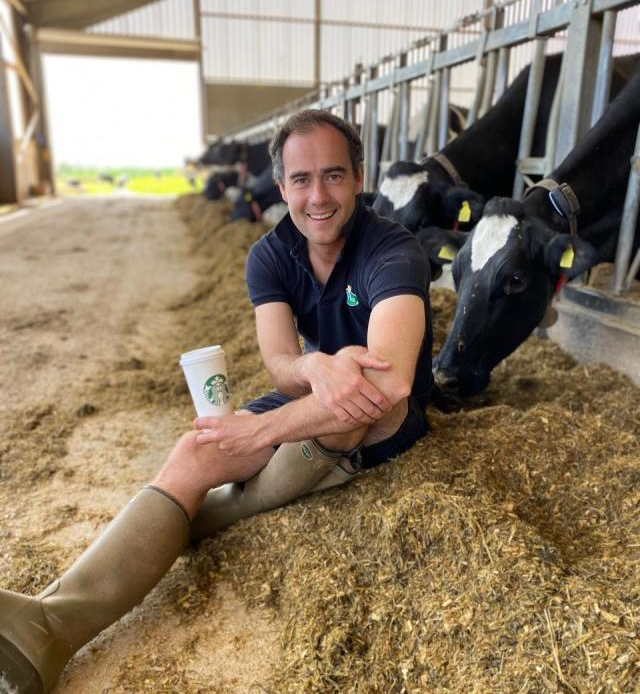The British arm of the dairy co-op Arla is working with coffee chain Starbucks on a project to reduce carbon emissions through sustainable milk sourcing.
Starbucks said dairy emissions account for 22% of its global carbon emissions and the three-year project with Arla will help it meet its goal of a 50% cut in emissions by 2030.
The scheme will develop and pilot a sustainable dairy sourcing blueprint for rolling out across its operations in Europe, the Middle East and Africa, and aims to find new farming practices to reduce the emissions from dairy production.
Arla will recruit 14 dairy farmers for the scheme through its 360 farm standards programme, with a focus on environmental stewardship, animal health and welfare, and ensuring profitability for farmers.
Alex Rayner, general manager at Starbucks UK, said: “This partnership with Arla and the dairy farming community underpins our commitment to produce high quality and responsibly sourced products.
“Starbucks and Arla share a commitment to upholding the highest standards in agriculture. As a farmer-owned business, Arla’s approach – including their cooperative principles – make them the right partner for us.”
Graham Wilkinson, group senior agriculture director at Arla Foods, said: “It is a huge testament to the sustainable farming practice of our owners that Starbucks has chosen Arla to support its sustainable sourcing development work. Our carbon net zero ambition recognises the importance of both lowering emissions and providing a helping hand to nature, but it is hugely important that Starbucks has also acknowledged the importance of taking a farmer first approach to deliver this.
“I hope it also provides reassurance to Starbucks customers to know that behind every cup is a combined effort to support farmers to run profitable and sustainable dairy farms.”

Mark Glanvill is one of the dairy farmers selected for the programme. He farms in the south-west of England with 280 cows on a farm that has been passed down through generations of his family since 1816. He says he works to keep his carbon footprint as low as possible, with a focus on limiting the feed brought on farm, using natural fertilisers and reducing chemical usage wherever possible.
He said: “I am very excited to go on this journey with Starbucks. While Arla’s dairy farmers are at the forefront of reducing emissions of dairy, it has to be recognised that this comes at a cost to production, our action can only be as fast as our finances allow. In joining the Arla UK 360 programme, Starbucks has shown recognition of this while its blueprint ambitions also demonstrate an understanding that sustainable sourcing must meet the criteria of good nutrition made with lower emissions and a helping hand for nature.”
Scientists from the Nature Conservancy, a global, and environmental stewardship non-profit, will also be working on the partnership.